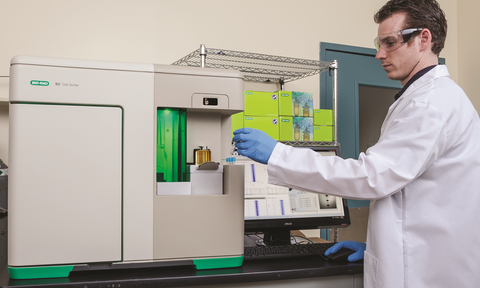
Bio-Rad’s S3 cell sorter was used as a training instrument at the 36th Annual Research Course in Flow Cytometry.
Prof. David Galbraith of the University of Arizona, a renowned expert in cytometry instrumentation, lead the Fluorescent Protein Analysis and Sorting session.
He said: “We chose the S3 cell sorter because it represents one example of an emerging trend in flow cytometric instrumentation, encompassing automated setup and operation as a sorter, a drastically reduced capital cost, and an accompanying small laboratory footprint.”
Nevertheless, for some activities, core facilities will remain indispensible
The research methods course was offered with an emphasis on applications in cell biology, immunology, cell labeling, fluorescent protein analysis, bead-based assays, screening, and sorting.
Distinguished members of the flow cytometry community taught a number of laboratory sessions and lectures aimed at individuals with some experience in flow cytometry.
Participants included students, postdocs, technicians, junior faculty, and company technical representatives. All attendees had access to a wide variety of commercial and developmental instruments.
“I anticipate many applications will emerge as a result of moving flow cytometry and cell sorting into user laboratories and away from central cores,” added Galbraith.
“Nevertheless, for some activities, core facilities will remain indispensible. I want attendees to be aware of these considerations, and to appreciate the capabilities of the new-generation instruments like the S3 cell sorter,” he concluded.
The Annual Research Course in Flow Cytometry is the longest-running flow cytometry training course in the U.S. It alternates between Bowdoin College in Maine and the University of New Mexico at Albuquerque.




